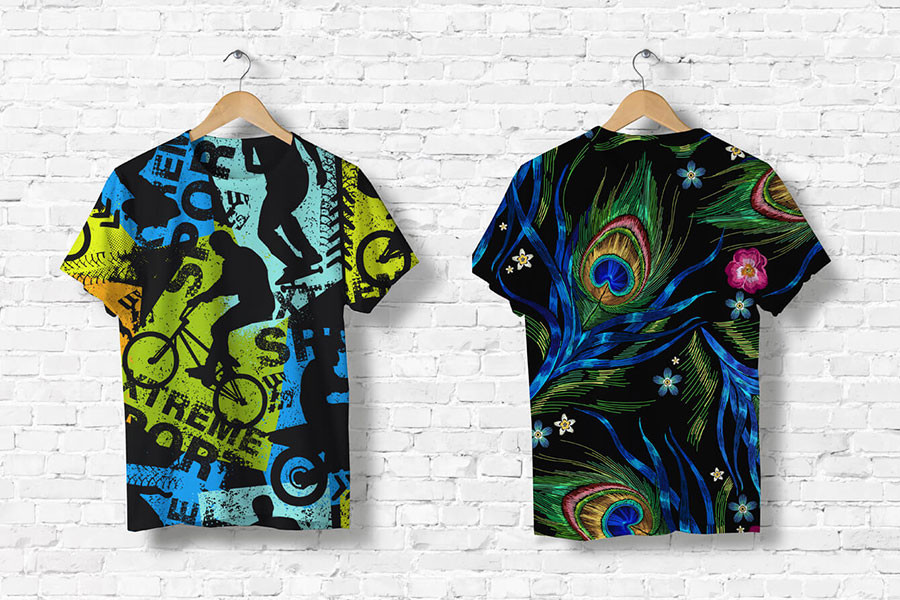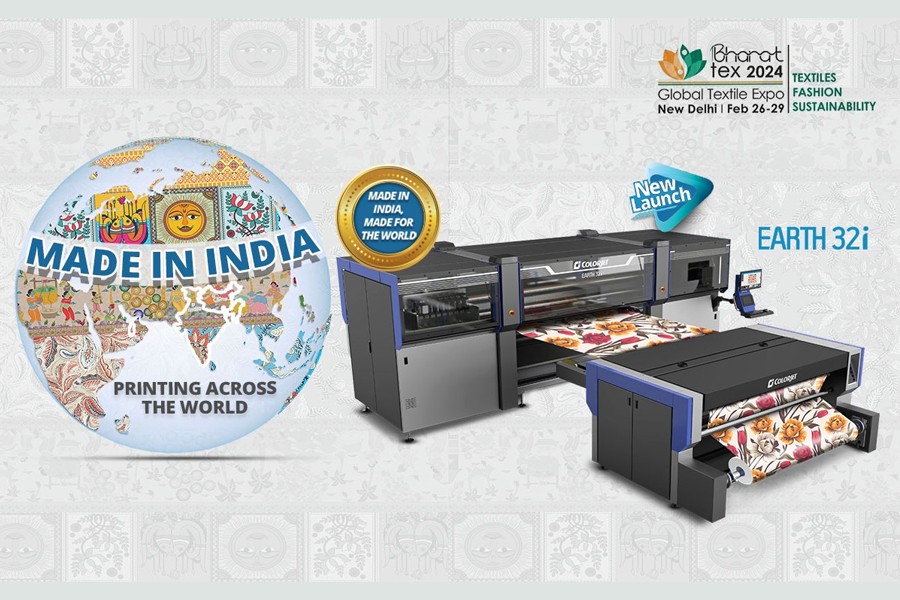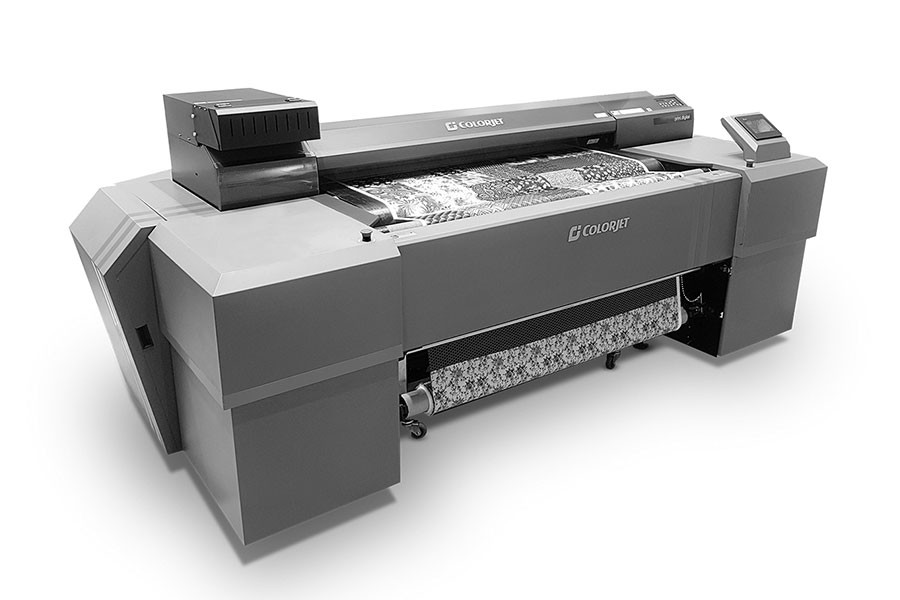
If you are starting your own custom t-shirt printing business, you should be aware of the different t-shirt printing techniques or methods. Which printing technique is best for you depends on the t-shirt material, scale of production required, the kind of designs you want to print, range of colors you would like to use etc.
The commercially available printing techniques may be divided on the underlying technology as below:
- Direct to garment (DTG) digital inkjet Printing
- Direct to fabric digital inkjet printing
- Screen Printing
- Transfer paper digital inkjet printing and heat transfer
Let’s look at the different techniques, their pros and cons, and commonly faced concerns. Garment customization and personalization are easier than ever. Whether you are into t-shirt printing, custom t-shirt, a shirt printing company, a design your own shirt or t-shirt company, an agency looking for branded t-shirts for events, a corporate company looking for customized t-shirts for the team, sports jerseys, a company designing and printing branded merchandise, a customized t-shirt printing company, there is a t-shirt printing machine for everyone as per their requirement. Digital printing has transformed the world of t-shirt printing where new techniques and machines have emerged, however, traditional printing also exists.


INKJET PRINTER – COMPONENTS AND TECHNOLOGY
DTG printing is an inkjet technology that prints high-quality, photographic, full-color designs and prints directly on a t-shirt. DTG printing is the most suitable for artwork or designs that are considered too complex for other printing techniques.
With DTG digital printing machines we have the possibility of printing with almost an unlimited choice of colors and in minute details.
If you are looking to print samples or a few t-shirts of a particular design, DTG printing is the go-to option as it is as convenient as putting a blank t-shirt into the DTG printing machine and then directly printing onto it. DTG printing machines are also called digital garment printing machines or digital apparel printing machines. It is the perfect solution for print on demand or design your own t-shirt businesses. DTG printing technique is a digital process, which requires almost no setup. You just require a digital file from the customer, and you can print the custom t-shirt easily.
Pros of DTG printing
- It offers the option of almost unlimited colors
- It is used to create complex designs and realistic prints
- The feel of the garment is soft in the end as it is printed directly onto it
- Minimal setup required
- Water-based inks are used, hence it is an eco-friendly way of t-shirt printing
Cons of DTG printing
- Most DTG printers are for printing a 200 square inch motif on the front and nothing more. However modern DTG printers are capable of printing across seams, on the sleeves, on caps or even shoe uppers made of canvas
- A low-quality DTG printer will yield low-resolution prints
Your browser does not support the HTML5 Video element.
Direct to Fabric Printing
Direct to Fabric printing is a technology that prints directly on fabrics. It can be uniform overall printing or it can be printing of cut patterns. Either way the steps are Print-Cut-Stitch as against Cut-Stitch-Print steps in case of DTG printers. The direct to fabric printing machines create unique and vibrant designs with low ink consumption.
Direct to fabric printers can print on a variety of fabrics. With direct to fabric printing, one can do more creative printing than with DTG printers.
Pros of Fabric printing
- Faster turnaround time
- Almost unlimited color options
- High productivity
Cons of Direct to Fabric printing
- Capital cost of investment is high
- Requires Pre and Post Setup
SCREEN PRINTING
The most commonly found t-shirt printing technique for large volume orders is the multiple station Screen Printing system. In this process, screens are used to apply the ink on the t-shirts. Like in case of fabric printing screen printers, each station is for a given colour. The inks used in screen printing are thicker as compared to the inks used in other printing techniques that make them last longer. Screen printing is one of the most traditional and oldest technique.

This t-shirt printing technique is the best option for large orders. Depending upon the design, ink quality, applied pressure, number of strokes, and one can print up to 500 t-shirts with a gallon of the ink compatible with screen printing machines. This makes it a highly cost-efficient technique of t-shirt printing.
Pros of Screen printing
- Inks used in screen printing impregnate the fabric. Good colour intensity and fastness properties
- After the setup, one can easily print a huge number of t-shirts of the same design at a fast speed
- With the right mix of ink and type of screen, it is compatible with most of the fabrics
Cons of Screen Printing
- Screen-printing is messy
- A considerable amount of space is required to set up the screen-printing machine
- The learning curve is steep
- The space for artwork placement is limited
HEAT TRANSFER PRINTING TECHNIQUE – SUBLIMATION PRINTING
This technique involves printing on transfer paper and then transferring the printed design on fabric using heat and pressure. The technique is restricted to printing on polyester fabric or polyester rich fabrics. It does not work on cotton or viscose like fabrics. The graphic or text that needs to be printed on the t-shirt is digitally printed on the special heat transfer paper that uses sublimation ink.

The design is transferred to the t-shirt from the paper using the sublimation ink when pressed with a heat press machine. In Dye Sublimation Printing, the mode of functioning is by printing graphics digitally on paper and then transferring the dye onto the t-shirts by heating them. Dye-sublimation printing uses dye-based ink, which turns into gas after it gets heated. Pressure, heat, and time make the dye-based inks move from a solid-state to a gaseous state and then back to the solid-state. Sublimation printing is primarily used to print on polyester. The gas joins the fabric i.e., polyester, hence it becomes part of the material and not just the layer on the top. The all-over print effects are much better in the dye-sublimation printing technique as compared to other t-shirt printing techniques.
Pros of Dye-sublimation printing
- Long-lasting print as the ink forms strong chemical bonds with fabric.
- Breathable and soft on the hand
- Print quality is high, hence no fading, peeling, or cracking
- Minimal maintenance and no mess
Cons of Dye-sublimation printing
- The color penetration is low
- Works only with poly-blend t-shirts
HOW COLORJET’S CAN PROVIDE YOU WITH AN OPTIMAL SOLUTION?
Colorjet provides you with high volume and endless designs printing solutions with its Vastrajet, Metro & SubliXpress machines.
Vastrajet and Metro are high volume industrial t shirt printing machine in direct to fabric category. These machines can be used to print 500 to 5000 t-shirts per day. and can produce endless designs and provide with high penetration of ink. Vastrajet & Metro can cater to demands of both cotton as well as poly-blend fabrics. Apart from being used as a t shirt printing machine it can also be used for various other applications like, fashion apparels, home furnishings, sports wear, etc.
SubliXpress is a high-speed sublimation machine and a game-changer in the business of industrial sublimation printing. This dye-sublimation printer is India's fastest ROI 1.6 m sublimation machine. The polyester fabric printing machine offers the capacity of 4000 sq. m/day and low power consumption is one of the advantages of the dye-sublimation printer making it an eco-friendly polyester fabric printing machine with handling thin paper to as low as 20 GSM which provides high ink transfer rates. Apart from being used as a sports apparel printing machine, this sublimation paper transfer machine is also used for various other applications like, fashion apparels, home furnishings, personalised merchandise, sports gear, etc.
To know more, consult our experts at info@colorjectgroup.com
Related Blogs



